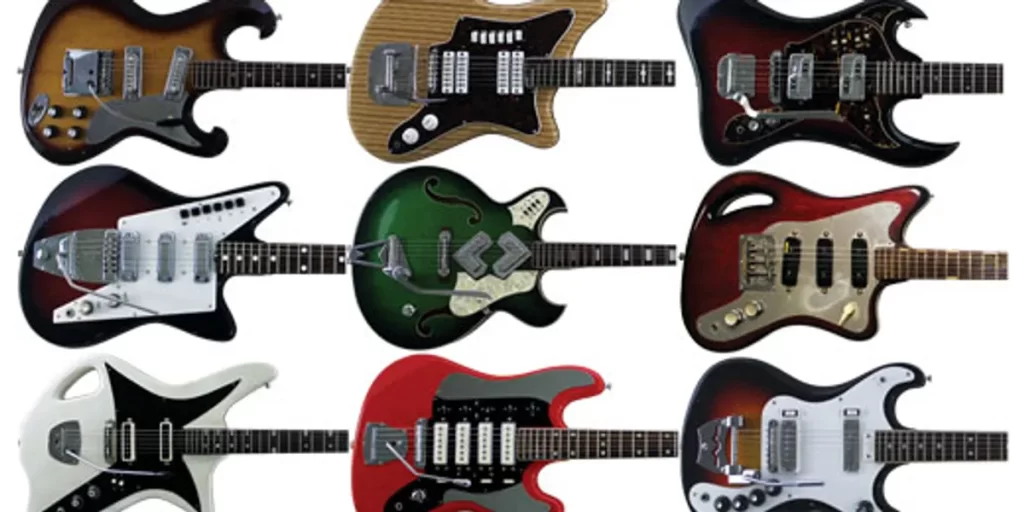Vintage Japanese Guitar Brands: A Legacy of Quality and Craftsmanship

Vintage Japanese guitar brands have earned a special place in the hearts of guitar enthusiasts worldwide. These instruments, produced in the 1960s and 1970s, continue to captivate musicians with their exceptional build quality, unique designs, and outstanding playability. In this article, we’ll delve into the world of vintage Japanese guitars, exploring the history and legacy of these iconic instruments that have left an indelible mark on the music industry.
The Birth of Japanese Guitar Manufacturing
The history of Japanese guitar manufacturing dates back to the mid-20th century when several Japanese companies decided to enter the guitar market. At that time, they were initially focused on creating low-cost instruments that could compete with American-made guitars. However, it didn’t take long for Japanese manufacturers to gain a reputation for quality and craftsmanship.
Teisco: Pioneers of Vintage Japanese Guitars

Teisco, short for Tokyo Electric Instrument and Sound Company, was one of the earliest and most influential Japanese guitar manufacturers. Founded in 1948, Teisco began producing electric guitars and amplifiers in the 1950s, eventually gaining popularity in the 1960s for its innovative designs.
Popular Teisco Models:
- Teisco Del Rey Spectrum: Known for its unique body shape and bold, psychedelic finishes, the Spectrum series remains highly sought after by collectors and players.
- Teisco May Queen: With its distinctive double-cutaway design and vintage-style pickups, the May Queen is a classic example of Teisco’s craftsmanship.
- Teisco ET-200: Recognized for its simplicity and twangy single-coil pickups, the ET-200 is a favorite among surf rock enthusiasts.
Guyatone: A Vintage Gem

Guyatone, another prominent Japanese brand, was established in 1933 and played a crucial role in shaping the vintage Japanese guitar landscape. While they initially focused on producing harmonicas and other instruments, Guyatone ventured into electric guitar manufacturing in the 1950s.
Popular Guyatone Models:
- Guyatone LG-50: This charming single-cutaway model is known for its simplicity, vintage charm, and warm, resonant tones.
- Guyatone LG-350T: With its semi-hollow design and versatile pickups, the LG-350T caters to players seeking a unique blend of vintage and modern tones.
Kawai: The Quiet Contender
Kawai, primarily recognized as a piano manufacturer, entered the guitar market in the 1960s. While they weren’t as prominent as Teisco or Guyatone, Kawai guitars gained a following for their exceptional craftsmanship and unique designs.

Popular Kawai Models:
- Kawai SD-4W: This model boasts a distinctive offset body shape and high-quality pickups, making it a hidden gem among vintage Japanese guitars.
- Kawai KS-11: Loved for its simplicity and playability, the KS-11 is a testament to Kawai’s dedication to producing quality instruments.
Global Impact and Legacy
Vintage Japanese guitars quickly gained recognition on a global scale. Musicians from various genres embraced these instruments for their affordability, quality, and distinctiveness. Bands like The Ventures, The Beach Boys, and even Kurt Cobain of Nirvana used vintage Japanese guitars in their music, cementing their place in music history.
Collectibility and Value
Today, vintage Japanese guitars have become highly collectible, with some models fetching significant prices in the market. Their increasing rarity and the growing appreciation for their unique features have contributed to their desirability among collectors and players alike.
Conclusion
Vintage Japanese guitar brands, including Teisco, Guyatone, and Kawai, have left an enduring legacy in the world of music. Their instruments continue to inspire musicians and collectors with their exceptional craftsmanship, innovative designs, and timeless appeal. Whether you’re a seasoned player or a guitar enthusiast, exploring the world of vintage Japanese guitars is a journey filled with history and sonic treasures.
For more articles, reviews, and insights on vintage Japanese guitars and other musical topics, visit our website, roothogmusic.com. We are dedicated to celebrating the rich heritage of musical instruments and the passion of musicians worldwide.